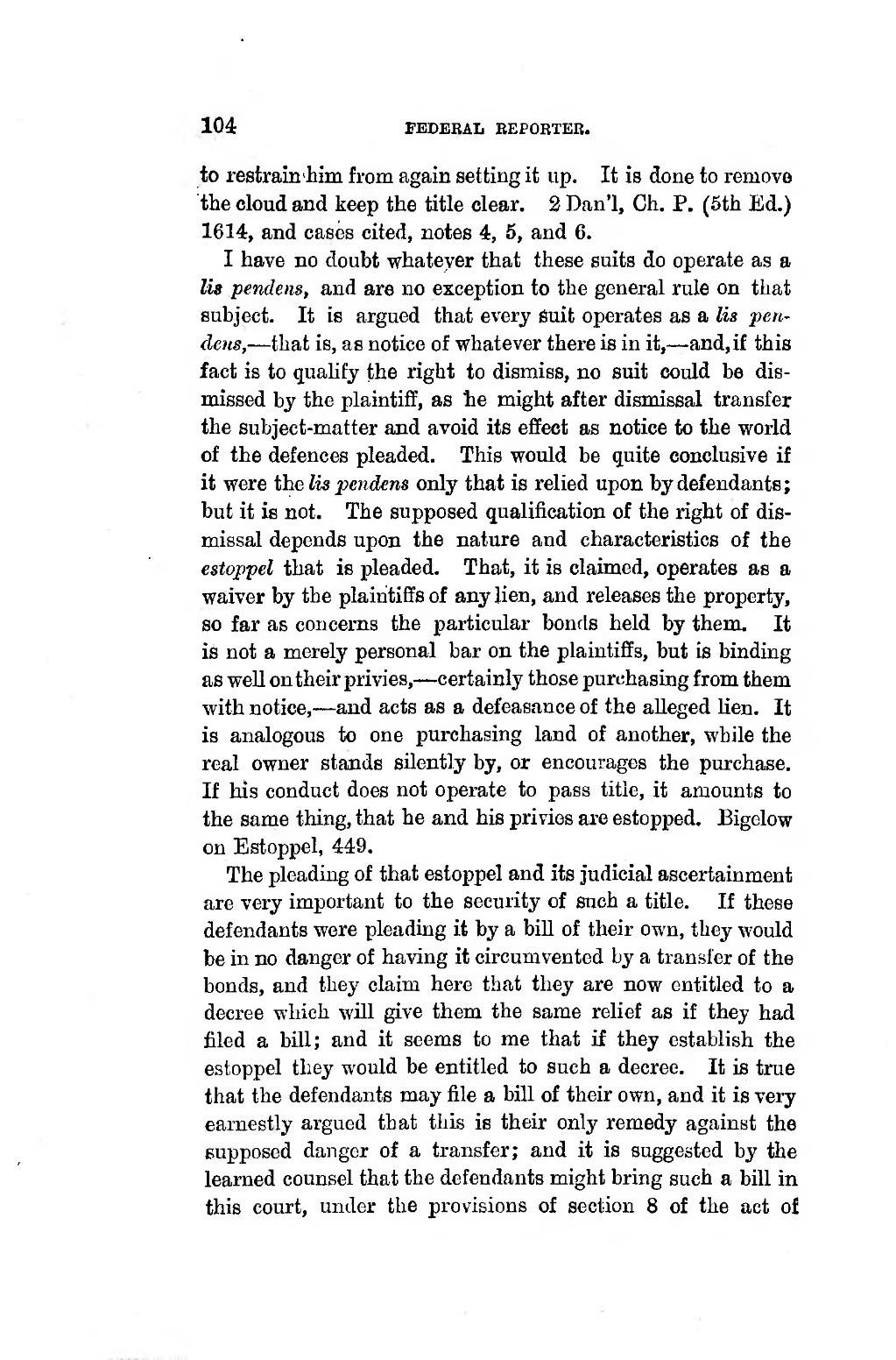104 FEDERAL REPORTER. �to restrainhim from again setting it up, It is done to remove the cloud and keep the title clear. 2 Dan'l, Gh. P, (5th Ed.) 1614, and cases cited, notes 4, 5, and 6. �I have no doubt wbateyer that these suits do operate as a lis pendens, and are no exception to the general rule on that subject. It is argued that every Suit operates as a lis pen- dens, — that is, as notice of whatever there is in it,— and,if this fact is to qualify the right to dismiss, no suit could be dis- missed by the plaintiff, as he might after dismissal transfer the subjeet-matter and avoid its effect as notice to the world of the defences pleaded. This would be quite conclusive if it were the lis pendens only that is relied upon by defendants ; but it is not. The supposed qualification of the right of dis- missal depends upon the nature and characteristics of the estoppel that is pleaded. That, it is claimed, operates as a wàiver by the plaintiffs of any lien, and releases the property, 80 far as concerns the particular bonds held by them. It is not a merely personal bar on the plaintiffs, but is binding as well ontheir privies, — certainly those puri;hasing from them with notice, — and acts as a defeasance of the alleged lien. It is analogous to one purchasing land of another, while the real owner stands silently by, or encourages the purchase. If his conduct does not operate to pass title, it amounts to the same thing, that he and his privies are estopped, Bigelow on Estoppel, 449. �The pleading of that estoppel and its judicial ascertainment are very important to the security of such a title. If these defendants were pleading it by a bill of their own, they would be in no danger of having it circumvented by a transfer of the bonds, and they claim here that they are now entitled to a decree which will give them the same relief as if they had filed a bill; and it seems to me that if they establish the estoppel they would be entitled to such a decree. It is true that the defendants may file a bill of their own, and it is very earnestly argued that this is their only remedy against the eupposed danger of a transfer; and it is suggested by the learned counsel that the defendants might bring such a bill in this court, under the provisions of section 8 of the act of ����
